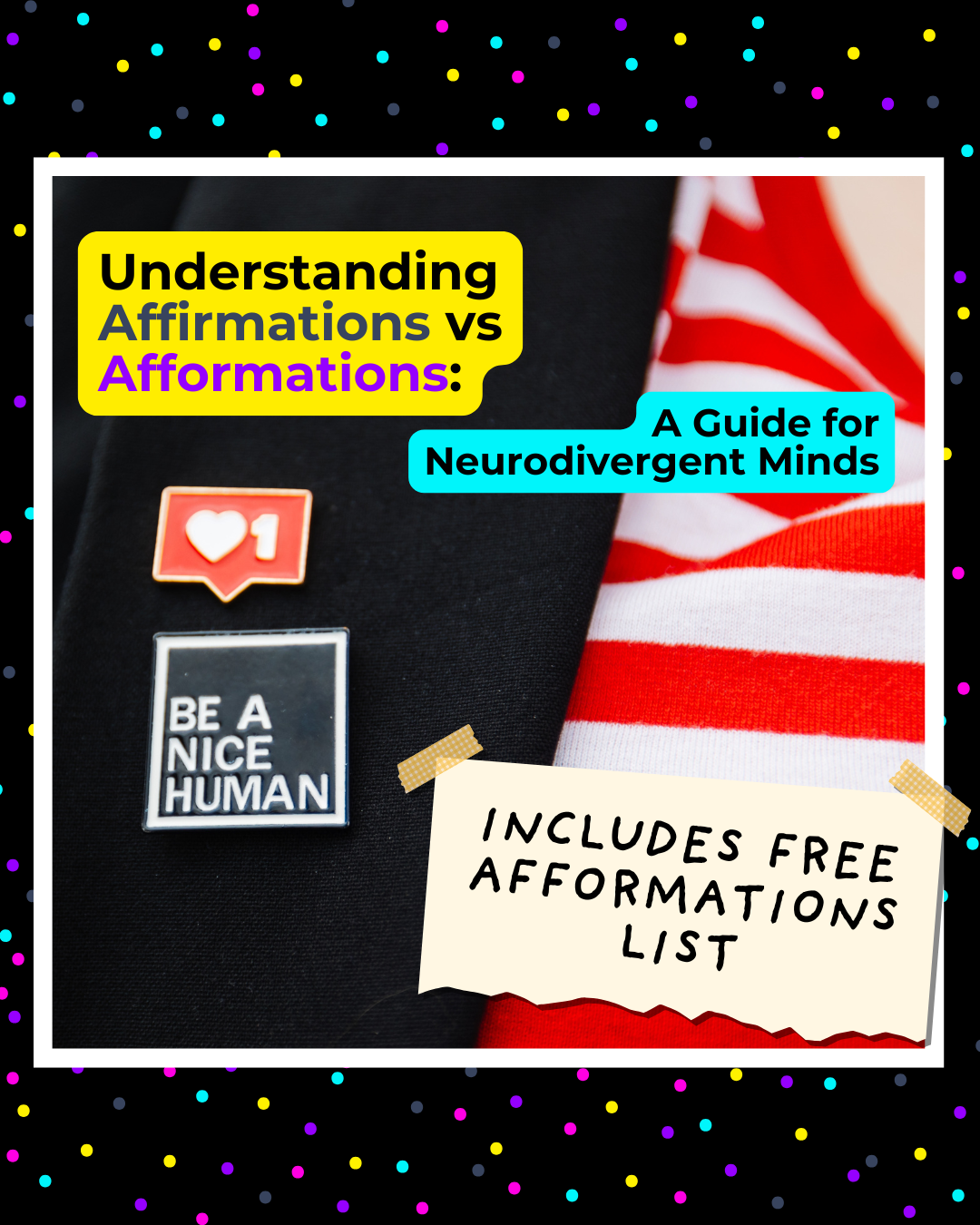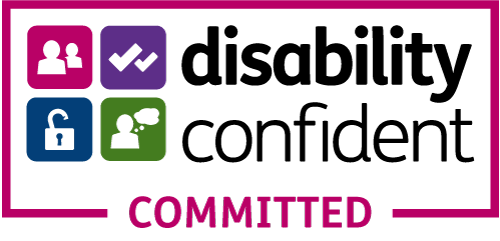- What Are Traditional Affirmations and Why Don’t They Always Work?
- Why Afformations Work Especially Well for Neurodivergent Minds
- Examples of Transforming Affirmations into Afformations
Traditional affirmations have long been a staple of personal development, but for many people – especially those of us with neurodivergent brains – they can feel inauthentic, cheesy, or even trigger resistance. It’s like someone telling you to “just be confident” when feeling anything but. So when I discovered afformations, I thought it might be the game-changer I’d been looking for.
I’m always on the lookout for anything that makes life a little easier, especially when it comes to my ADHD brain.
What Are Traditional Affirmations and Why Don’t They Always Work?
Affirmations are positive statements we repeat to ourselves, such as “I am confident” or “I am successful.” Sounds great in theory, right?
While these can be powerful tools, they often face one significant challenge: our brain’s natural tendency to reject statements that feel untrue to our current experience.
It’s that little voice inside that goes, “Yeah, right!”
For neurodivergent individuals, who often process information differently and may have a heightened sensitivity to inconsistencies, traditional affirmations can feel particularly jarring or false.
It’s like trying to force a square peg into a round hole – it just doesn’t work, and it can be incredibly frustrating.
Enter Afformations: The Power of the Question
Afformations, coined by Noah St. John (no, I don’t know him, but I like his thinking), take a different approach.
Instead of making statements, they pose empowering questions. For example, rather than stating, “I am confident,” you might ask, “Why am I becoming more confident every day?” See the difference?
This subtle shift makes a profound difference for several reasons:
Our brains are wired for questions: We naturally seek answers. It’s how we learn and process information.
Questions bypass resistance: They’re less confrontational than statements and don’t trigger that “yeah, right” response.
They feel more authentic: They align better with how our minds naturally process information. It’s less like telling yourself a story and more like exploring a possibility.
Why Afformations Work Especially Well for Neurodivergent Minds
For neurodivergent individuals, afformations can be particularly effective because:
They engage the problem-solving parts of our brains: Which, let’s face it, we’re pretty good at.
They don’t trigger sensory or emotional overwhelm: That forced positivity can be a lot sometimes. Afformations are gentler.
They allow for a more flexible and personalised approach: We can tailor them to our specific needs and experiences. One size doesn’t fit all, especially when it comes to neurodiversity.
They work with our different thinking patterns: Instead of forcing our brains to conform to a neurotypical model, afformations work within our existing frameworks.
Examples of Transforming Affirmations into Afformations
Here’s how to convert traditional affirmations into more effective afformations:
Instead of… “I am worthy” Try asking… “Why am I naturally worthy of good things?”
Instead of… “I can handle challenges” Try asking… “Why do I find it easier to handle challenges every day?”
Instead of… “I am getting better at focus” Try asking… “Why am I discovering new ways to focus that work for me?”
Getting Started with Afformations (Because Who Needs More Overwhelm?)
To begin your afformation practice:
Identify areas where you’d like to see positive change: What’s bugging you? What would you like to improve?
Transform your concerns into “why” questions that assume positive outcomes: This is the key!
Write these questions down (or save them digitally): Somewhere you’ll actually see them. No point in writing them on a scrap of paper you’ll lose, right?
Review your afformations regularly: Especially during challenging moments. That’s when we need them most.
Remember, the goal isn’t to force positivity but to open your mind to new possibilities and perspectives. This gentler approach often resonates particularly well with neurodivergent individuals who might find traditional personal development techniques overwhelming or ineffective. It’s about working with your brain, not against it.
💡 Pro Tip: Create your own personalised afformations that relate specifically to your experiences and challenges. The more relevant they are to your life, the more effective they’ll be. For example, instead of “I am successful,” I might ask, “Why am I finding it easier to manage my time and get things done?” It’s much more specific and relevant to my ADHD brain.
And, of course, I’ve created a Notion board with a load of them all ready to go!
Whether you’re neurodivergent or neurotypical, afformations offer a fresh approach to personal development that works with your brain’s natural tendencies rather than against them. Give them a try – you might be surprised at how naturally they fit into your daily routine.
If you like my ramble about Afformations, why don’t you find out more about me? Get in touch and see if I can help you with your business, socials or just by making things run that bit smoother.
I’d love to hear from you!






